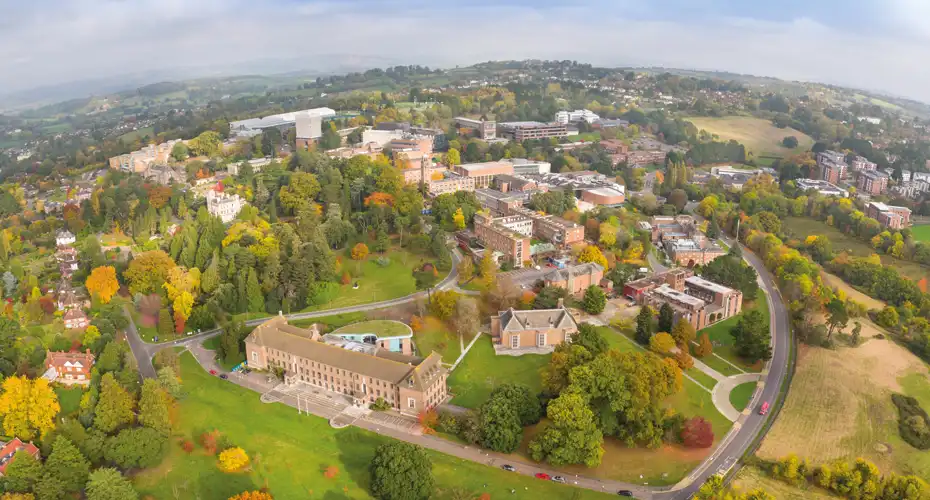Final award:
- IfATE Level 6 Diagnostic Radiographer Degree Apprenticeship
- MSc Diagnostic Radiography and Imaging (pre-registration)
| Duration | 2 years |
|---|---|
| Entry point(s) | November |
| Application deadline | Dependent on employer, see How to apply |
| Campus | St Luke’s Campus, Exeter and Online Learning |
|---|---|
| Contact |
Overview
- For graduates holding a BSc (Hons) or BEng (Hons) degree seeking an accelerated route into Diagnostic Radiography
- Designed in collaboration with partners to deliver evidence-based practice to gain clinical competence with a focus on holistic compassionate care, this MSc ‘fast track’ Degree Apprenticeship builds upon our well-established BSc programme
- Apprentices will undertake extensive workplace learning and practice within their imaging department, underpinned by a strongly academic programme delivered through blended learning
- Full access to our recently upgraded imaging facilities including X-ray room and clinical skills laboratories
- Programme approved by the Health and Care Professions Council (HCPC) and the Society and College of Radiographers (SCoR)
![]()
Fully funded route into a profession in high demand
![]()
Consistently rated one of the best institutions for Diagnostic Radiography in the UK
![]()
Very strong academic, clinical and practice focus
![]()
Excellent career prospects within the NHS and independent healthcare sector
![]()
Fully funded route into a profession in high demand
![]()
Consistently rated one of the best institutions for Diagnostic Radiography in the UK
![]()
Very strong academic, clinical and practice focus
![]()
Excellent career prospects within the NHS and independent healthcare sector
Accreditations


The MSc Diagnostic Radiography and Imaging (Pre-Registration) is approved by the Health and Care Professions Council.
The MSc Diagnostic Radiography and Imaging (Pre-Registration) is approved by the College of Radiographers for a period of five years, from 09/2024 to 08/2029 inclusive.
I have been involved with the Degree Apprenticeship Diagnostic Radiographer course since its conception and had confidence that the University of Exeter would run this course with success.
The University have been extremely open to feedback since the concept and have involved all the interested departments from the beginning. It has been really refreshing that they have tried to adapt to what our departments need.
Deborah
Radiology Educational Lead PGH and Accredited Advanced Practitioner at the NHS
Entry requirements
An upper second-class (2:1) honours degree (BSc or BEng) or equivalent in a relevant subject. GCSE Maths and English grade C or 4 or Functional skills Maths and English Level 2 or equivalent.
Apprentices must also have a valid and eligible residency status to gain entry onto the apprenticeship – please see the ESFA guidance for further information.
Apprentices whose first language is not English need to meet IELTS requirements of at least 7.0 overall and no less than 6.5 in any other section.
How to apply
Applicants will need to be employed or hold an unconditional offer of employment as an apprentice radiographer within a Radiology department of an NHS hospital or independent provider.
Employers will need to have access to the full range of imaging modalities, and be willing to support the apprentice for the duration of the programme. This may be offered internally to existing staff or may be advertised externally via NHS jobs directly into apprenticeship positions to undertake the programme at the University.
Supported by the employer, candidates will submit an application to the University for a place on the programme.
Funding
Full programme cost: £24,000
The employer fully covers the cost of the apprenticeship; apprentices do not pay for any of the eligible training costs. The apprentice will be an employee of the organisation, gaining a University of Exeter award alongside working and earning a salary.
Employers who pay the Apprenticeship Levy will pay for the apprenticeship fees directly through that contribution. See further information on the Apprenticeship Levy funding.
Employers must pay their apprentices a salary at least consistent with national legislation.
Funding eligibility criteria
- To be eligible for funding apprentices must meet the criteria listed in the ESFA guidance.
- They must also have a valid and eligible residency status to gain entry onto the apprenticeship – please see the ESFA guidance for further information
Course content
The UK faces a significant skills gap for Diagnostic Radiographers within our healthcare workforce with rising employer demand for highly skilled, qualified professionals. The Diagnostic Radiographer Degree Apprenticeship programme offers a new route into the profession for graduates holding a BSc (Hons) or BEng (Hons) degree.
This two year programme will, through specialised modules, build upon knowledge gained in a first degree or equivalent, providing apprentices with:
- Radiographic knowledge and an understanding of professional practice
- Intensive training in a radiology department
- The skills and knowledge to progress to full qualification and to work with patients in a healthcare setting.
Year 1:
This Stage provides theoretical knowledge and practical skills required for radiography. Academic and supported study provides theoretical knowledge of patient care, anatomy, imaging techniques, professional practice and the science that underpins medical imaging. This academic knowledge is complemented in the workplace which provides a practical environment in which to learn how theory is applied in practice and practical experience in the safe and effective practice of radiography.
Compulsory modules
| Code | Module | Credits |
|---|---|---|
| RADM101DA | Applied Radiographic Knowledge (M) | 30 |
| RADM102DA | Professional Practice (M) | 15 |
| RADM103DA | Practice Foundations (M1) | 15 |
| RADM104DA | Practice Placement (M1) | 30 |
Year 2:
Drawing upon the knowledge and skills learnt in year one, in year two you will have further opportunities to learn theory as applied to practice and to gain further practical experience of the safe and effective practice in the range of imaging modalities. During this year in the workplace you will become an integral member of the multi-professional healthcare team and will undertake an audit, service evaluation or piece of research. You will also undertake an employer negotiated placement in a jointly agreed area of practice.
Compulsory modules
| Code | Module | Credits |
|---|---|---|
| RADM201DA | Radiographic Image Evaluation (M) | 15 |
| RADM202DA | Evidence Based Practice for Radiographers (M) | 15 |
| RADM203DA | Practice Foundations (M2) | 30 |
| RADM204DA | Practice Placement (M2) | 30 |
“My apprenticeship provided comprehensive training across all modalities, building on my previous experience as an imaging assistant and my background in physics. The lectures and masterclasses at Exeter not only prepared me academically but also equipped me with knowledge on patient care.
The strong focus on student support and wellbeing, alongside the apprenticeship’s combination of earning while learning, tailored off-the-job training, and familiarity with hospital protocols, has been invaluable in advancing my career in radiography.”
Grace
MSc Diagnostic Radiographer Degree Apprenticeship Alumna
Learning
Approximately 20 per cent of an apprentice's contractual working time will be given over to study. Our model is designed to be flexible around the needs of apprentices and workloads.
The blended learning format incorporates:
- One five-day study block per year at the University of Exeter
- Six virtual masterclasses per year
- Online learning made up of: virtual tutorials, webinars as well as full access to extensive study materials in the University library.
Our dedicated Degree Apprenticeship partnerships team liaise closely with employer partners throughout the programme to ensure ongoing support. Each apprentice is allocated a workplace mentor and an academic mentor to help ensure their successful completion of the programme.
Apprenticeship Standard
Alongside working towards a level 6 apprenticeship, completing the Knowledge, Skills and Behaviours of the apprenticeship standard, apprentices will also study for a MSc Diagnostic Radiography and Imaging (pre-registration) degree.
This programme aligns with the level 6 Diagnostic Radiographer (integrated degree) standard.
Careers
The Diagnostic Radiographer Apprenticeship has been designed to focus on the needs and requirements for skilled diagnostic radiographers to fill the growing skills gap the health sector faces.
Designed in collaboration with employers from across the sector, apprentices will achieve their apprenticeship and graduate as an integral member of their team, after gaining the skills, knowledge and behaviours required to deal with a range of patients using a wide range of modalities.
Employer information
Offer an accelerated route to science or engineering graduates working within your organisation looking to train in Diagnostic Radiography and Imaging. You can offer your employees a two-year route to gain the requisite range of clinical competence so that they are fully equipped as informed, evidence-based practitioners. Apprentices will learn to be responsible for the safe use of imaging equipment and the safe conduct of examinations, including the radiation protection of patients, themselves, staff and visitors.
Our dedicated education team will work with you and the apprentices to ensure that the work-based learning component of the programme is designed to meet both the requirements of the clinical department as well as complying with the University’s educational standards.
Download our Diagnostic Radiographer Brochure







